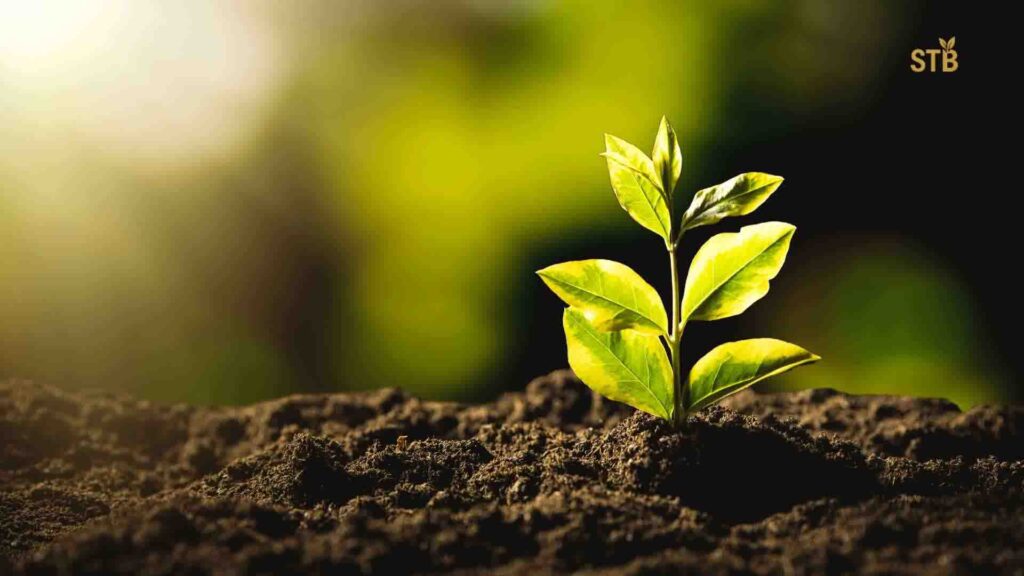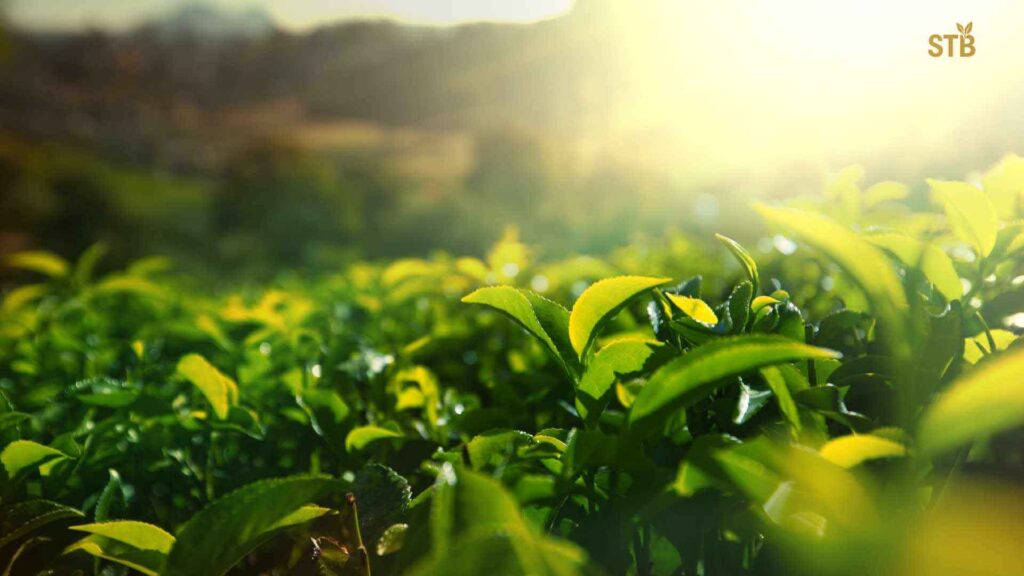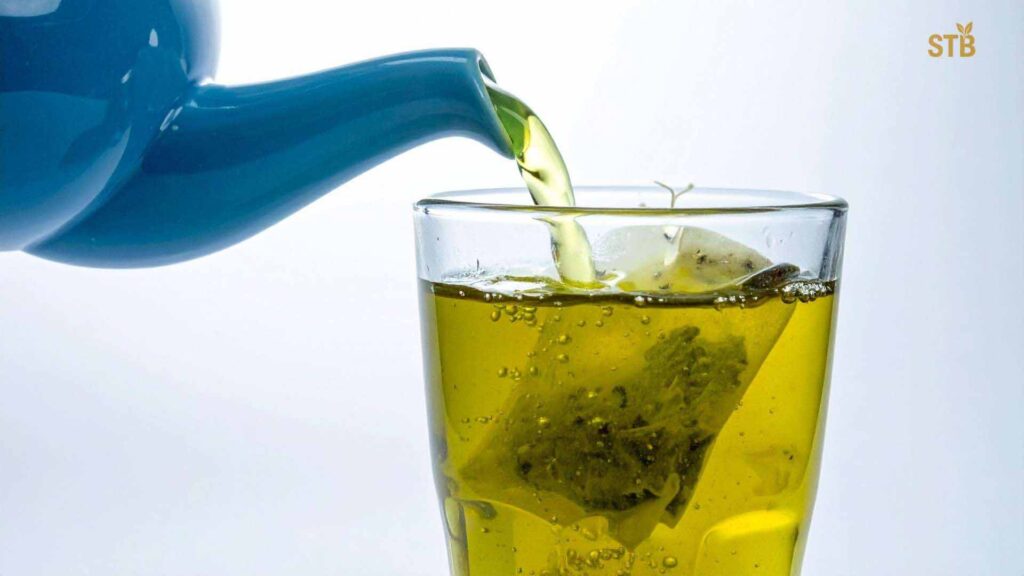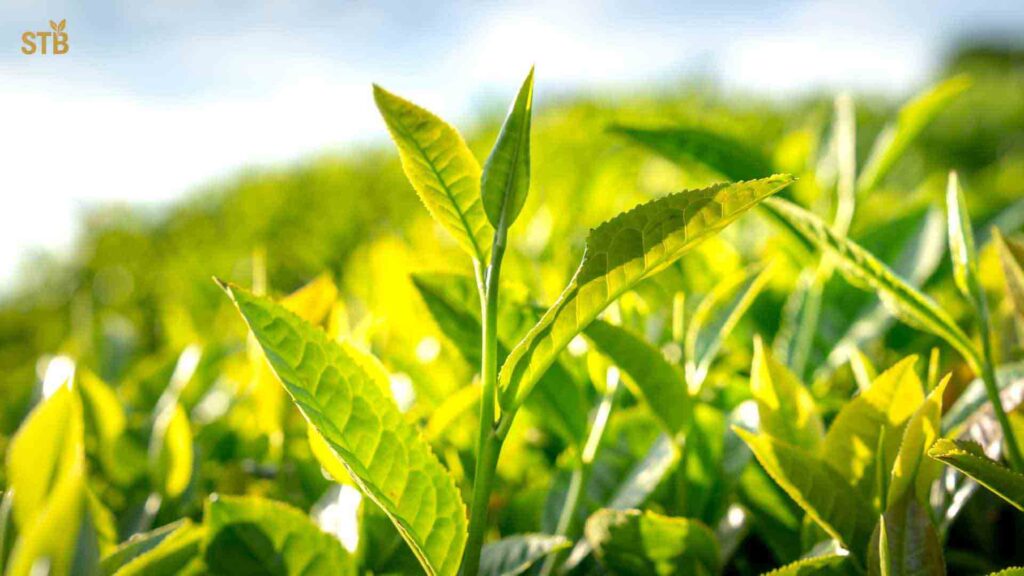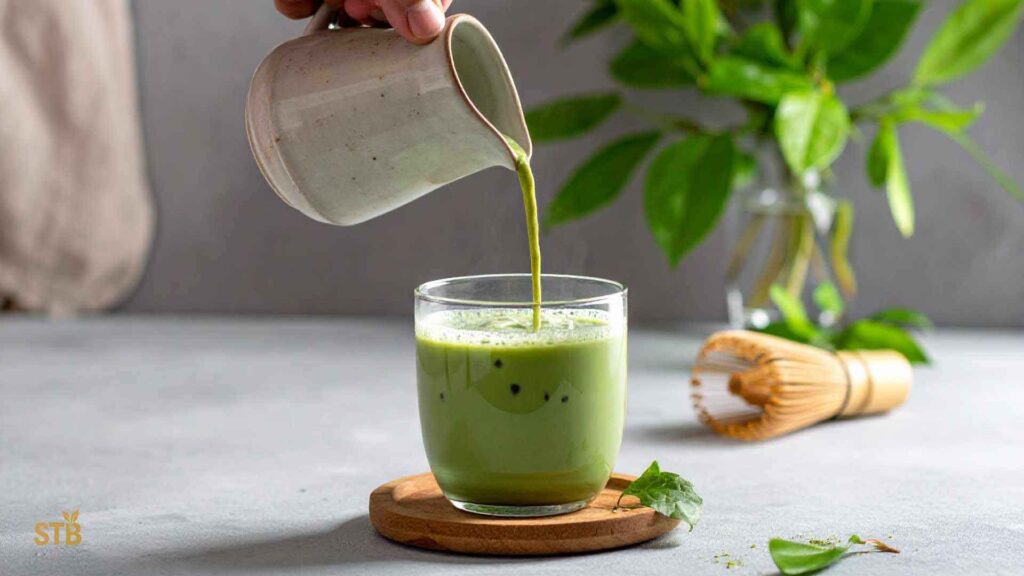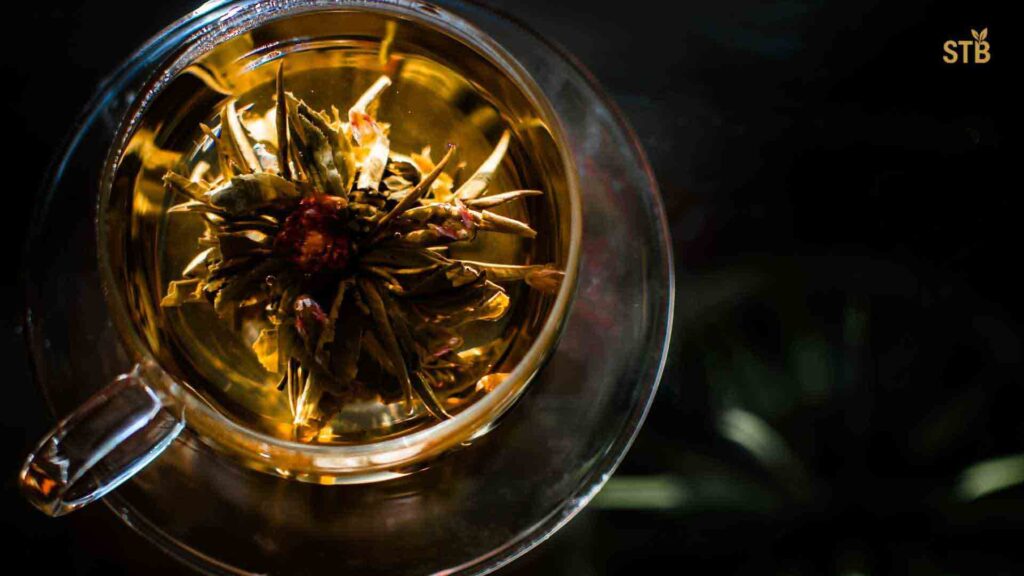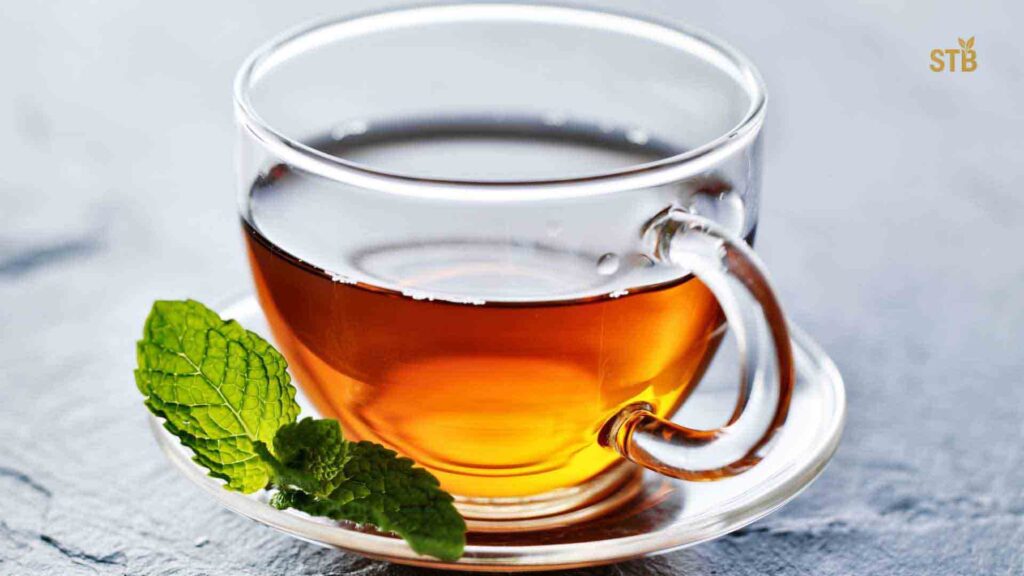STB Leaf is committed to Sustainable Tea Farming Bangladesh, ensuring every cup we produce is eco-friendly from field to cup. We blend traditional cultivation knowledge with modern organic techniques so our lush tea gardens thrive without harming the land or people. By adopting these eco-friendly practices, we support both the environment and local communities.
Bangladesh’s Tea Industry and Sustainability
Bangladesh is among the world’s top tea producers, growing ≈97 million kilograms annually. Tea cultivation began in colonial times, and today over 160 estates cover roughly 280,000 acres. The misty hills of Sylhet Division remain the heart of the industry, while newer regions (like Panchagarh/Tetulia) are rapidly expanding production. Tea provides livelihoods to millions of Bangladeshi farmers, so maintaining sustainable farming is vital for long-term prosperity.
Recognizing this, Bangladesh is promoting green agriculture to make farms more climate-smart. The government and NGOs encourage organic cultivation, crop rotation, and water-efficient irrigation. These practices help tea gardens stay productive despite erratic weather and rising costs. In short, eco-friendly tea cultivation is moving from niche to mainstream across the country’s tea estates. See also our blog “The Journey of Bangladeshi Tea: From Garden to Cup” for more on tea cultivation in Sylhet’s hills.
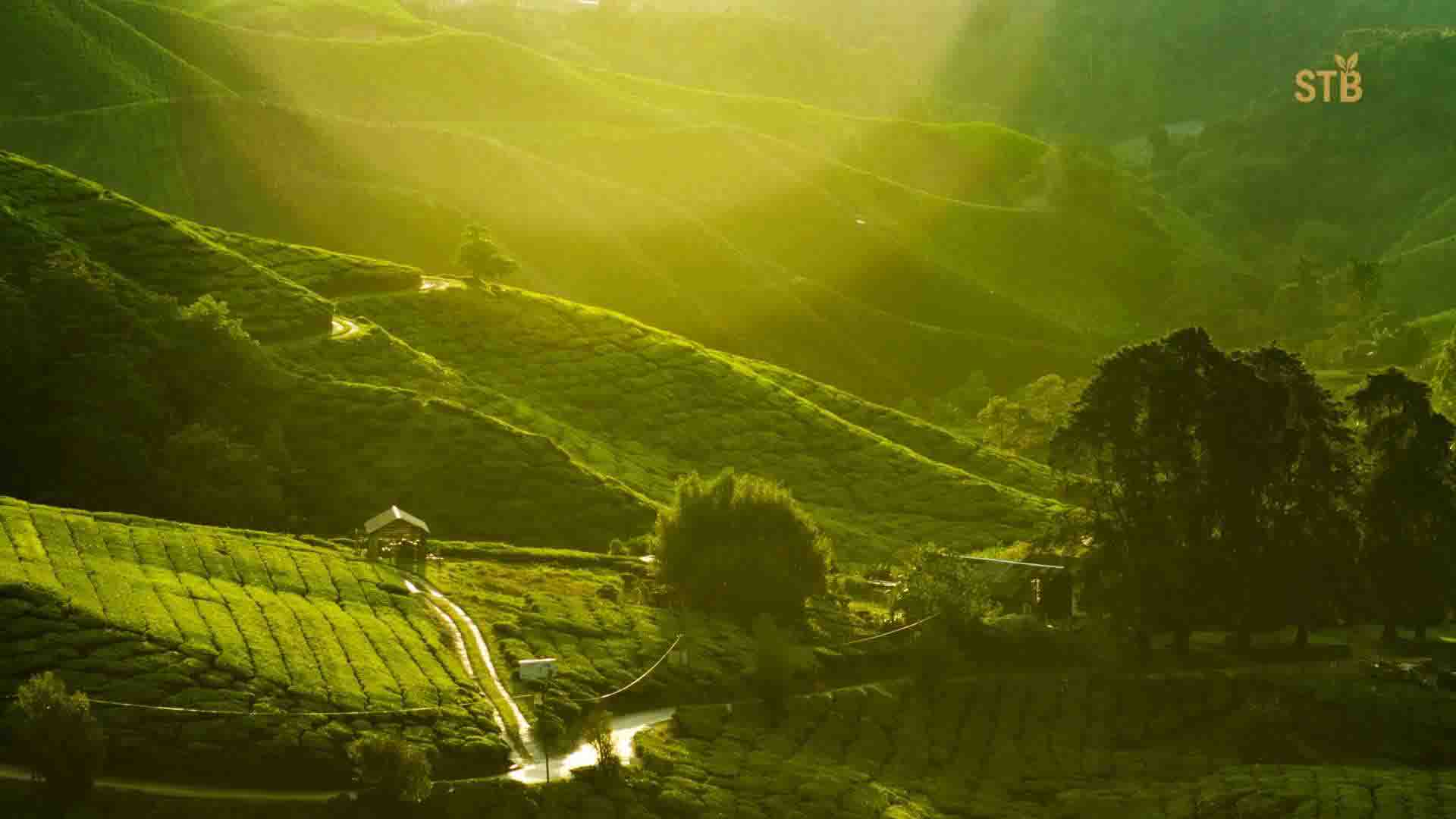
What is Sustainable Tea Farming Bangladesh?
Sustainable tea farming means growing tea in a way that meets present needs without compromising the future. It involves methods that protect the environment and empower farming communities. In practice, this includes organic, chemical-free cultivation; water and soil conservation; and ecosystem preservation.
As one Bangladeshi organic tea garden explains, true sustainability “uses farming practices that do no harm to the environment, but actually help it flourish”, and it supports social programs that improve workers’ lives.
Key aspects of sustainable tea farming include:
- Organic Cultivation: Using compost, vermicompost and other natural fertilizers to feed tea bushes. This nourishes plants without synthetic chemicals, keeping rivers and streams clean.
- Water & Soil Conservation: Harvesting rainwater and using drip irrigation to minimize water use, while planting cover crops or mulching to prevent erosion. These steps restore soil health and resilience.
- Biodiversity & Shade: Preserving native shade trees and intercropping with plants like legumes. For example, Kazi & Kazi Tea Estate has planted millions of indigenous trees in Tetulia, regenerating forests around its gardens. Native vegetation provides habitat for wildlife and sequesters carbon.
- Natural Pest Management: Controlling pests with beneficial insects (like ladybugs) and botanical sprays (e.g. neem or chili oil) instead of harsh pesticides. For instance, KKTE uses only nature-friendly pest control and completely avoids synthetic chemicals. This integrated approach keeps ecosystems healthy.
- Renewable Energy: Where possible, using solar panels or biogas from farm waste to power estate operations, reducing carbon emissions.
Together, these practices ensure tea is grown in harmony with nature. We meet today’s tea demand while preserving soil fertility, clean water, and biodiversity for tomorrow.
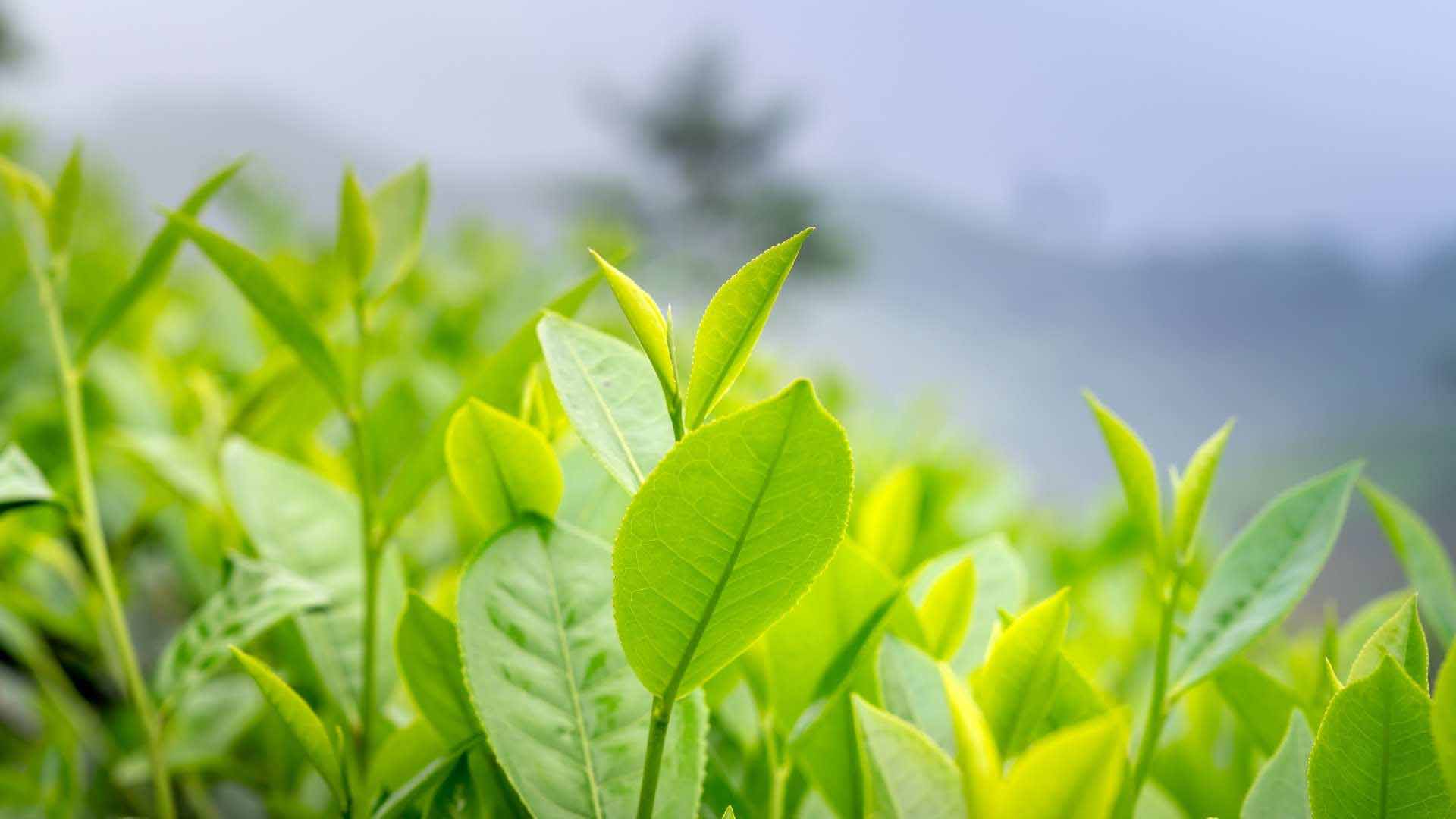
Eco-Friendly Tea Gardens in Bangladesh
Several Bangladeshi tea estates model what eco-friendly cultivation looks like:
- Kazi & Kazi Tea Estate (Tetulia): Bangladesh’s first internationally certified organic tea garden. Established on fallow land, KKTE uses only organic methods (no synthetic fertilizers or pesticides) and renewable energy (solar and biogas). The estate has planted millions of native trees, restoring local forests and biodiversity. Organic techniques here reduce carbon emissions and make the farm more resilient.
- Teatulia Garden (Panchagarh): The first USDA Organic-certified tea garden in Bangladesh. It uses no synthetic chemicals and practices strict soil and water conservation. These organic methods have restored a thriving ecosystem to the plantation. The garden also pioneered community cooperatives (cattle loans, education and health programs) that empower local families.
- Other Eco Estates: In the Tetulia region and beyond, many new gardens adopt “natural farming” (no mechanical tillage or chemical sprays). These emerging estates show that eco-friendly tea cultivation is spreading across Bangladesh.
These examples show how eco-friendly tea gardens in Bangladesh can flourish: by going organic and reforesting land, growers prove that high-quality tea can be produced in harmony with nature and community development.
Sustainable Practices in Our Tea Gardens
STB Leaf gardens follow many of these eco-friendly practices:
- Organic Farming: Our Sylhet growers enrich soil with homemade vermicompost and green manures, completely avoiding chemical fertilizers. We also rotate tea with legumes and other cover crops to naturally replenish nutrients. This keeps soils alive and healthy, and prevents erosion.
- Water Management: Many partner gardens use rainwater harvesting and drip irrigation, delivering water efficiently to tea bushes. This greatly reduces water waste and reliance on groundwater. We also train farmers on mulching and light pruning to conserve soil moisture naturally.
- Biodiversity & Pest Control: We maintain native shade trees amidst the tea rows, which cool the plants and support beneficial insects. Pests are managed with integrated methods: encouraging predators (e.g. ladybugs) and applying organic botanical sprays (neem, chili, etc.) rather than synthetic pesticides. This protects wildlife and ensures tea leaves are clean.
- Community & Integrated Farming: Sustainability also means caring for people. We partner directly with farmers to ensure fair wages and joint planning. For example, we support cattle-cooperatives: families receive milking cows on loan, and repay with cow dung, which the farm uses as organic fertilizer. This cattle-lending model (as used by gardens like Teatulia) provides both income and natural manure, benefiting both the farm and the family.
In each of our gardens, these measures create a resilient, self-sustaining ecosystem. By focusing on soil health, conserving resources, and empowering workers, every step we take reinforces eco-friendly tea farming.
Benefits of Sustainable Tea Farming
Adopting sustainable methods brings wide-ranging benefits:
- Environmental: Healthier soils and forests. Organic fertilization (compost, bio-fertilizers) raises soil organic carbon and structure, enhancing fertility and water retention. Trees and biodiversity on farms store carbon and stabilize the climate. For example, the native trees planted by Kazi & Kazi absorb tons of CO₂ over their lifetimes.
- Cleaner Water: Without synthetic inputs, runoff remains clean. Efficient irrigation and water harvesting further conserve water. This preserves Bangladesh’s precious freshwater and prevents pollution downstream.
- Farmer Livelihoods: Organic and Fairtrade teas command premium prices. Fairtrade-certified farms, for instance, receive minimum prices and premiums to fund community projects. On our farms, fair wages and profit-sharing mean families earn more. Community initiatives (schools, clinics, etc.) funded by tea revenues greatly improve quality of life.
- Tea Quality & Market Value: Organic tea often has richer flavor and more nutrients. Consumers are increasingly seeking Bangladesh organic tea. Green teas from our gardens, for example, are high in antioxidants like EGCG. Indeed, Fairtrade reports show a strong shift toward organic tea – in 2022, 72% of Fairtrade tea sales were organic. Eco-minded buyers value the purity and health benefits of sustainably grown tea.
- Climate Resilience: Farms managed organically are more resilient. Healthy soils and tree cover buffer against floods and droughts. Sustainable practices like diversified cropping and drought-tolerant varieties help estates adapt to changing weather. As KKTE’s CEO notes, organic farms may not be able to control climate change, but they recover better from its impacts and reduce greenhouse gases.
- Community Well-Being: Sustainable farming uplifts entire villages. Clean air and water mean fewer health issues. Educational and co-op programs empower women and youth. For instance, literacy and IT training programs funded by tea co-ops (as at Teatulia) give villagers new skills and income sources.
In summary, sustainable tea farming protects the ecosystem while strengthening our economy. It safeguards Bangladesh’s tea future, making sure that our green hills remain fertile for generations.

STB Leaf’s Commitment to Sustainability
At STB Leaf, sustainability is our mission. We invest in initiatives that link our success to the well-being of tea communities. Our blog post “Farmers Behind STB Leaf’s Fresh Premium Tea: A Human-Centered Story” highlights how we work directly with Sylhet farmers. For example, we ensure fair compensation to workers so families earn a living wage from tea. We also fund community development – using tea revenues to build housing, sanitation facilities, schools, and clinics in garden villages.
We actively support farmers with climate adaptation training: providing improved irrigation systems, drought-resistant tea plants, and farming workshops on organic methods. This empowers growers to maintain yields under extreme weather. Importantly, our sourcing is transparent: by following a “single-garden” or short supply chain model, we deliver fresher tea to you and a larger share of the profit to growers.
Every step reflects our commitment: from hand-plucking each organic leaf to using eco-friendly packaging. When you choose STB Leaf, you’re helping uphold a greener tea industry. Together, we honor Bangladesh’s tea heritage while driving it toward a sustainable future.
Green and Organic Tea Industry in Bangladesh
Demand for green and organic tea is rising in Bangladesh and globally. Traditionally, Bangladeshi growers focused on robust black tea, but many estates now cultivate green tea for its lighter, floral flavor and health benefits. Green tea is prized for antioxidants, making it popular with health-conscious consumers.
Organic tea (black or green) is a fast-growing niche. Pioneering gardens like KKTE and Teatulia produce certified organic tea for export. Globally, consumers are shifting toward organic: Fairtrade data show 72% of Asian-Pacific tea sales were organic in 2022. This means Bangladeshi producers who go organic can earn premium prices.
At STB Leaf, our product range includes a variety of Bangladesh organic teas – from antioxidant-rich green teas to flavorful black teas – all grown without chemicals. Choosing these teas lets consumers enjoy pure flavor and support sustainable farming.
Certifications and Global Standards
Certifications ensure sustainable practices. Look for labels like Rainforest Alliance, USDA Organic, or Fairtrade on tea products. These require strict standards:
- Rainforest Alliance: Farms must protect natural forests and waterways, prevent deforestation, and ensure safe working conditions.
- USDA/EU Organic: Prohibits synthetic pesticides/fertilizers. Kazi & Kazi’s tea estate meets EU-Organic, USDA/NOP, Japanese JAS standards, along with Rainforest and Fairtrade certifications.
- Fairtrade: Guarantees a minimum price and an extra premium for community projects, promoting environmental and social responsibility.
Our partner farms align with these standards. When you see a certification, it means that estate adheres to global best practices in eco-friendly farming and worker welfare. We continue working towards full Organic and Fairtrade certification for all our teas, so you can trust that STB Leaf meets the highest sustainability criteria.
How Consumers Can Support Sustainable Tea
Every tea drinker has power to make a difference:
- Choose certified teas: Look for Organic, Rainforest Alliance, or Fairtrade labels. These ensure sustainable farming and fair labor.
- Buy from ethical brands: Purchasing from STB Leaf, for example, directly supports fair practices and green farming in Bangladesh. We provide transparency about our farms.
- Spread awareness: Share information about eco-friendly tea with friends. Growing demand for sustainable tea encourages more farmers to go green.
- Practice eco-habits: Compost your used tea leaves or use reusable tea infusers. Composting spent leaves returns nutrients to the soil and reduces waste.
By making informed choices—drinking eco-friendly tea—you help expand sustainable tea farming. Each cup of STB Leaf tea you enjoy contributes to healthier ecosystems and communities in Bangladesh.
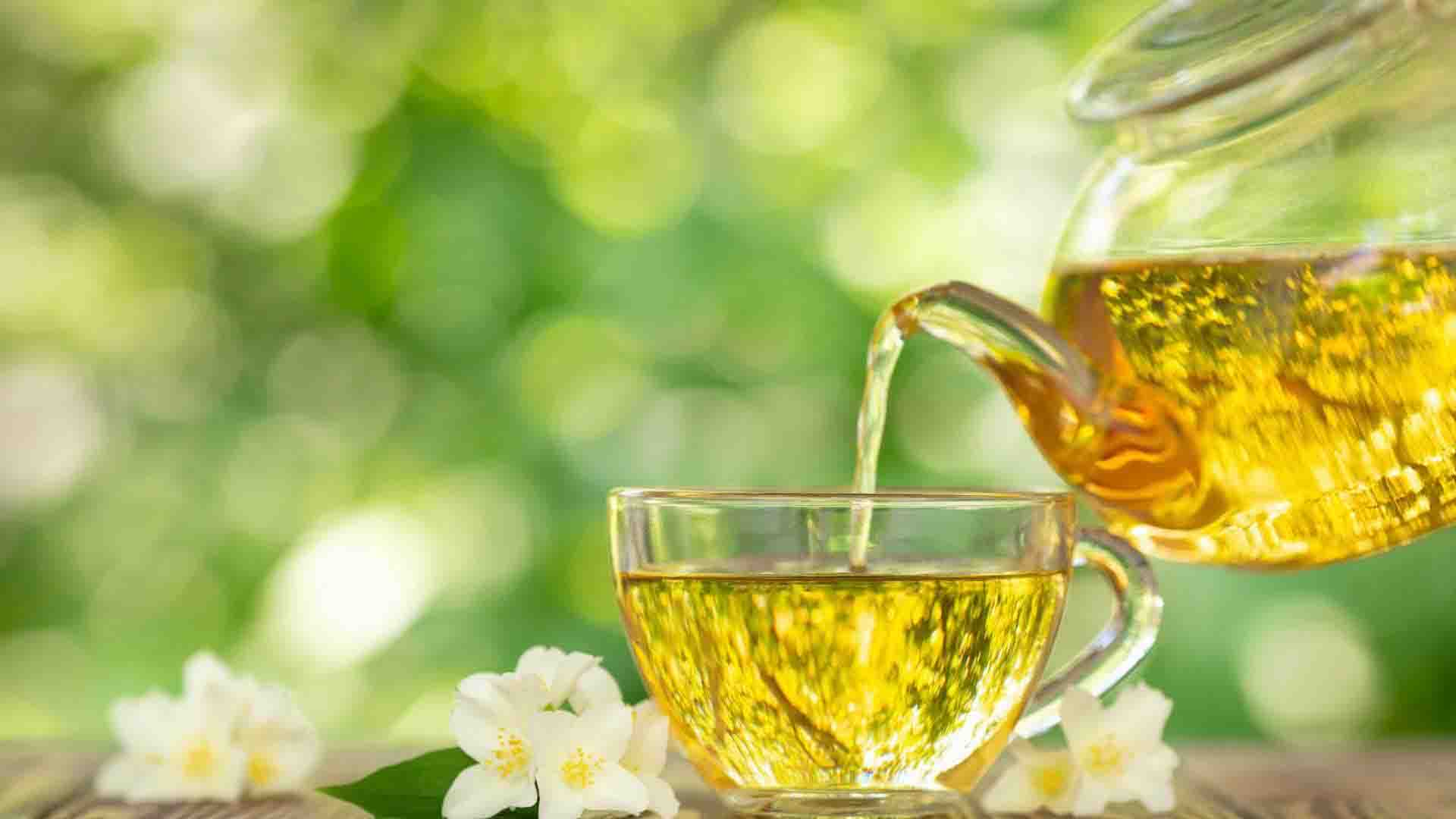
Sustainable tea farming in Bangladesh is at the core of STB Leaf’s mission. By using organic agriculture, conserving natural habitats, and uplifting tea communities, we ensure our teas are both high-quality and good for the planet. From the verdant fields of Sylhet to innovative estates in Tetulia, eco-friendly practices are securing Bangladesh’s tea future.
As an eco-conscious tea lover, you can taste the difference and make an impact. Explore STB Leaf’s collection of sustainably grown teas and join us in supporting green agriculture. Every cup you enjoy helps preserve Bangladesh’s tea gardens for generations to come. Experience the harmony of nature and taste – shop our eco-friendly tea collection today and be part of the sustainable tea movement.
FAQs
Q: What is sustainable tea farming?
A: Sustainable tea farming means growing tea in ways that protect the environment and support farm communities. It uses organic methods (no synthetic pesticides or fertilizers), conserves water and soil, and ensures fair labor. The goal is to produce high-quality tea without depleting resources, so future generations can continue farming the land.
Q: How does organic tea farming differ from conventional farming?
A: Organic tea farming avoids synthetic chemicals entirely. Instead, it relies on compost, manure, and biological pest controls to nourish the plants. This yields pesticide-free tea and prevents water and soil pollution. Conventional farming typically uses chemical inputs that can harm ecosystems and human health.
Q: Why is sustainable tea farming important in Bangladesh?
A: Bangladesh’s tea industry involves millions of people and large agricultural areas. Sustainable farming keeps soils fertile and water clean, preventing erosion in our fragile hills. It also opens premium markets: “Bangladesh organic tea” can fetch higher prices abroad, improving farmer incomes. In short, eco-friendly methods ensure the long-term health of the land and livelihoods that depend on it.
Q: What practices make a tea garden eco-friendly?
A: Eco-friendly tea gardens use natural practices: they apply organic fertilizers (like compost or cow manure) and plant cover crops or shade trees to enrich the soil. They manage pests with beneficial insects or botanical sprays instead of chemicals. Water is conserved through drip irrigation or rainwater harvesting. Some farms even integrate livestock (for natural fertilizer) and diversify crops. These steps create a balanced farm ecosystem.
Q: Is STB Leaf tea certified organic or sustainable?
A: STB Leaf sources tea only from gardens that follow organic and sustainable practices. Many of our partner estates are certified (USDA Organic, EU Organic, Fairtrade). Even where formal labels aren’t yet obtained, we ensure no harmful chemicals are used and that workers are treated fairly. We’re continually moving toward full organic certification on all our teas.
Q: How does sustainable farming benefit tea farmers and communities?
A: Sustainable farms often earn more. Certified organic/fair-trade tea sells at a premium, increasing farmer income. The extra revenue funds community projects like schools, healthcare, and clean water. For instance, tea co-ops may use Fairtrade premiums to build clinics or fund literacy programs. On our farms, programs like cattle loans (for manure and milk) give families extra income and free organic fertilizer for the fields. Healthy farms and healthy communities go hand-in-hand.
Q: How does climate change affect tea farming in Bangladesh, and how do farmers adapt?
A: Climate change brings unpredictable rains and extreme weather, which can hurt tea yields. Sustainable tea farming helps adapt to these challenges: planting trees and improving soil organic matter makes fields more flood-resistant and drought-tolerant. Farmers also use drought-resistant tea varieties and efficient irrigation systems (like drip lines) to conserve water. Bangladesh’s green-agriculture initiatives promote these methods to build resilience.
Q: How can I tell if a tea is sustainably grown?
A: Look for certification labels such as Organic, Rainforest Alliance, or Fairtrade on the package – these are third-party guarantees of sustainable practices. You can also research the brand. Reputable companies (like STB Leaf) often share detailed information about their farming partnerships on their websites or blog. For example, we document our sustainable sourcing in our blog posts.
Q: Can I compost my used tea leaves?
A: Absolutely! Composting tea leaves is a great way to return nutrients to the soil and reduce waste. Used tea leaves are rich in organic matter and make excellent compost. Simply add your spent leaves to your garden compost bin or mulch them into your soil – they help feed plants for another season.
Q: Why should I choose STB Leaf for sustainable tea?
A: Choosing STB Leaf means you’re supporting eco-friendly agriculture in Bangladesh. We ensure our tea is grown by partner farmers using sustainable methods, and we invest in their well-being. Our commitment to transparency, quality, and community development means your tea habit can help positively impact lives and the environment in Bangladesh. Enjoy premium-quality tea that is ethically produced – with STB Leaf, every cup makes a difference.

